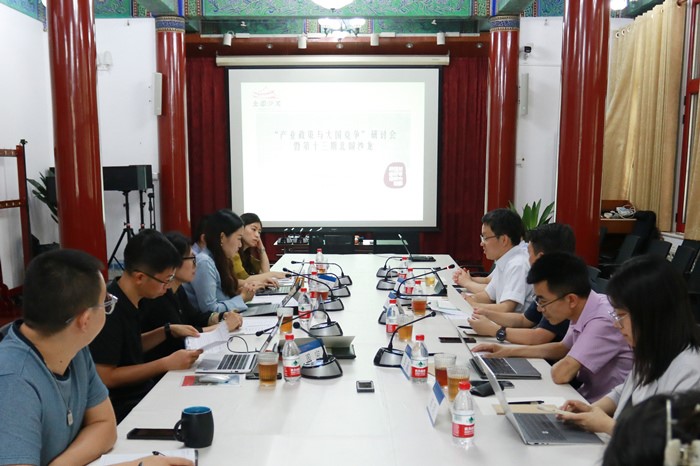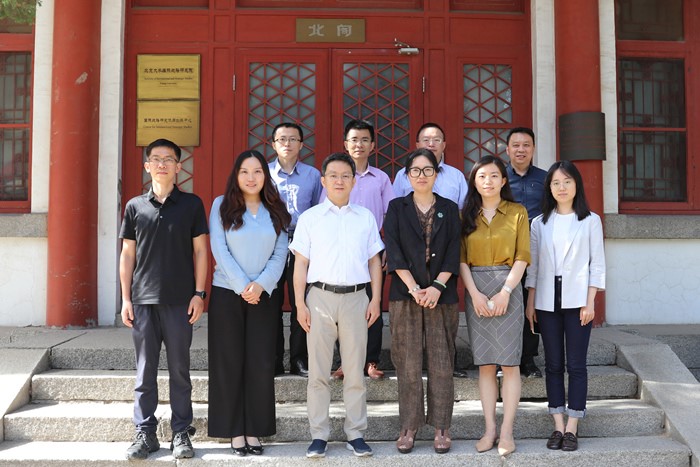On July 5, 2023, the Institute of International and Strategic Studies (IISS), Peking University (PKU) held the seminar on "Industrial Policy and Great Power Competition" and the 13th North Pavilion Salon at the North Pavilion.

Experts and scholars from universities and institutions such as the Chinese Academy of Social Sciences, China Institute of International Studies, China Institutes of Contemporary International Relations, Academy of Macroeconomic Research of the National Development and Reform Commission, the Chinese Academy of International Trade and Economic Cooperation[I1] of the Ministry of Commerce, CICC Global Institute, Peking University, and Renmin University of China were invited for in-depth discussions. Associate Professor Gui Yongtao, Vice President of IISS, PKU, and Associate Professor Lei Shaohua, senior research fellow at IISS, PKU, attended the meeting and delivered speeches. The salon was chaired by Gong Ting, Associate Research Fellow at the Department for American Studies of China Institute of International Studies.

The North Pavilion Salon aims to promote a profound dialogue between theoretical research and policy studies by providing a platform for exchanges among young and middle-aged scholars. The experts focused on the industrial policies of both China and the United States against the backdrop of great power competition. They mainly discussed key topics such as historical lessons learned from the U.S. industrial policy, characteristics of the current Biden administration's industrial policy, and China's countermeasures, involving multiple fields that include integrated circuits, electric vehicles, critical minerals, digital infrastructure, and supply chains. They pinpointed that industrial policy has been increasingly evolving to be an important tool in great power competition, and industrial policy implemented by the Biden administration serves the U.S. strategy of competing with China, so it features the style of big government. Although China lags behind the U.S. in terms of high-tech research and development, some industries are catching up thanks to the support of industrial policy. The experts feel it essential to mobilize forces of both government and market, integrate resources of "government, industry, academia, and research," enhance the innovativeness of enterprises, and improve the structure of market demand, thereby effectively transforming industrial policy into productivity.
Editor: Li Fangqi, Photographer: Zheng Peijie

